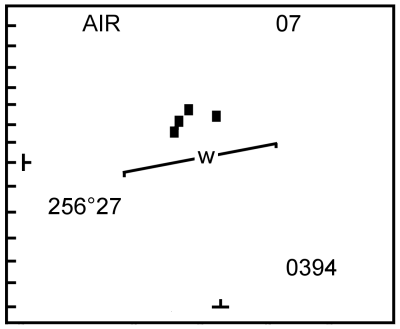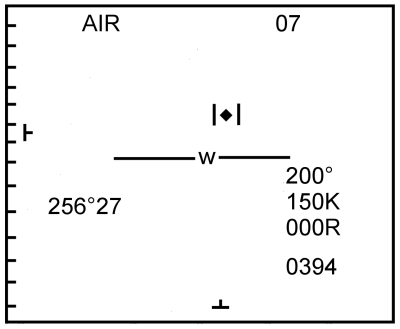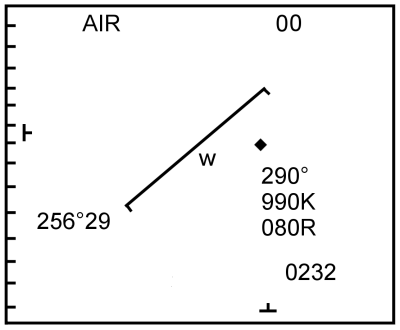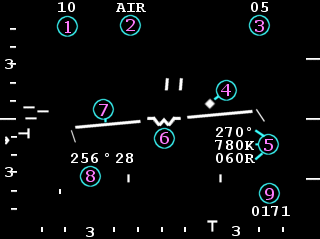On June 22, 1990, French Paris Match magazine reporter Marie-Thérèse de Brosses, with a Paris Match photographer, SOBEPS secretary general Lucien Clerebaut and French scientist Jean-Pierre Petit, who had a long interest in the UFO question, met with Colonel Wilfried de Brouwer, then Chief Operations in the Air Staff, later Major General, of the Belgian Air Force.
The meeting was arranged by SOBEPS as an interview session, about the night from March 30 to 31, 1990, when two Belgian Air Force F-16 jets were scrambled to intercept one or more UFOs seen from the ground and tracked by ground radar sets. De Brouwer explained what happened in these intercepts. It resulted in a Paris Match article. Also, Jean-Pierre Petit soon told of the meeting in his book “Enquête sur les OVNIS” in 1990 [1].
Jean-Pierre Petit explained that as he is a former aeronautics engineer, former French Air Force officer, former head of radar control during interception operations, he obtained the sympathy of Col. De Brouwer, did his best to obtain detailed information, and thus he and the others could get to see the recordings of the jets mission at a BAF control room, as relevant extracts from the F-16 radar recordings.
Jean-Pierre Petit later specified that he urged the Paris Match photograph to take pictures of the displayed recordings, “take pictures, dammit!” (“Prenez des photos bon sang!”) - but the young man did not, arguing that “it would show nothing” (due to the lack of light etc.), Jean-Pierre Petit explained [2] that he thus took three photographs himself, and those were published in Paris Match. Then the French popular science magazine Science et Vie published an article by Bernard Thouanel that claimed the all these UFOs in Belgium were the “invisible secret plane F-117 from the US”, and many people, including myself - I was not interested in UFOs back then - believed it at the time.
Petit indicates that there were 9 intercept attempts, i.e., 9 radar detections prompting the F-16 to try to approach the UFO. At each attempt, the UFO accelerated down to or below 200 meters altitude, (thus escaping radar tracking), then the UFO took height again, of course reappearing on the radar, and the F16's made another interception attempt.
Petit indicates that in 3 of these 9 attempts, the pilot locked on the radar-detected UFO for 3 to 6 seconds before the UFO escaped down.
Petit provided three sketches in his book [1], with explanation, showing HUD (Head Up Display) data from one of the 3 intercepts when there was a lock on. They are not those on the three photographs in Paris Match that I will show in a further article, but might be part of the same lock on episode - the heading is the same.
The 3 sketches by Jean-Pierre Petit look like below and provides the following data, with comments.

|
Jean-Pierre Petit indicates it is the first picture, it shows the 4 most recent “paints”; which indicates that the object was already detected. Petit says the F-16 came at a speed of 900 km/h relative to the UFO.
Data shown as I understand it: Radar is in Air to Air mode (AIR). Altitude of UFO is 7000 feet (07). Distance between UFO and jet is 3.94 nautical miles (0394). Aircraft heading is 256°27. Aircraft (W) is slightly turning to the right (indicated by the horizon symbol line at the W).
When the radar detects a moving object, it puts a square on the screen. The square slowly fades, the most recent is the most shining. The image does represent 4 detections.

|
Jean-Pierre Petit indicates this is a next image. The lock on is done. When the pilot locked on, the UFO speed was 150 knots i.e. 280 km/h, the distance between the jet and the UFO was 4 nautical miles i.e. 7 kilometers, and the altitude 3000 meters. Petit comments that as the jets came onto the UFO at 900 km/h and thus should have reached it in about 6 seconds.
Data shown as I understand it: the pilot just locked on, as the “lock on” cursor is still just on the rhombus locked target symbol. Radar is still in Air-to-Air mode (AIR). Altitude of UFO is 7000 feet (07). Distance between UFO and jet is 3.94 nautical miles (0394). UFO speed is 150 knots (150K). Aircraft heading is 256°27. Aircraft (W) is turning to the right (indicated by the horizon symbol line at the W. UFO is slightly to the right (000R).

|
Jean-Pierre Petit indicates that 2 seconds later, the UFO dives to the ground while the jet turns to the right to try to center on it. The UFO speed was now 1830 km/h and its altitude is now below 200 meters. It thus cleverly escaped both airborne radar and ground radar.
Data shown as I understand it: the jet's heading is 256°29. Distance between jet and UFO was reduced to 2.32 nautical miles (0232). UFO altitude is displayed as “00”, i.e. below some 200 meters. UFO speed was computed as 990 Knots. The UFO was now 80° to the right relative to the jet.

|
| (1) | The radar range. Here it is set to 10 nautical miles. 10 nautical miles in an intercept is when things get serious. |
|---|---|
| (2) | The radar mode. Here it is set to “Air-to-Air” mode; this AN/APG66(V1) radar has 6 different operation modes. The Air-to-Air mode eliminates any echo below an altitude of 200 meters above the ground, this eliminates for example ground clutter. |
| (3) | The altitude of the target. Here, “05” means 5.000 feet. |
| (4) | The most recently detected targets are indicated by squares. When locked, the target is indicated by this rhombus symbol seen here. To “lock” a target, the pilot chooses a target picked up by the radar, drags the cursor (the two parallel lines above the “W” here) on its most recent “square” and presses a button. The radar then explicitly shows the target with this symbol and the radar computer displays information about this target. |
| (5) | Data about the locked-on target are indicated: its heading (270° here), its speed in Knots (780 Knots here, the Knot is a unit of speed, equal to one nautical mile per hour), its relative angular horizontal position to the aircraft (60° at the right of the aircraft here). |
| (6) | The W symbolizes the aircraft, it shows its pitch in relation to the horizon. Here it shows that the F-16 is turning to the right. |
| (7) | This line represents the horizon of the Earth. (6) and (7) indicate here that the aircraft maneuvering to close in on the target (the UFO) at its right. The pilot needs to turn at a particular angle for the target not to keep drifting farther away, but he must also keep it away from collision course. |
| (8) | The heading of the F-16. |
| (9) | ? |